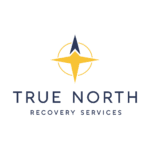When seeking addiction treatment, your privacy is not just important—it’s legally protected. Understanding your rights under HIPAA and other privacy laws can help you feel more confident about entering treatment and focusing on your recovery journey.
What is HIPAA, and How Does It Protect Addiction Treatment Patients?
The Health Insurance Portability and Accountability Act (HIPAA) is a federal law that protects your medical information. For addiction treatment patients, HIPAA provides crucial safeguards that ensure your treatment remains confidential.
HIPAA protects your Protected Health Information (PHI), which includes:
- Medical records and treatment history
- Diagnosis and treatment plans
- Insurance information
- Any communication about your care
- Mental health and substance abuse records
Your healthcare providers, including addiction treatment centers, cannot share this information without your written permission, except in very specific circumstances outlined by law.
Does HIPAA Apply to All Addiction Treatment Centers?
Yes, HIPAA applies to most addiction treatment facilities. Any healthcare provider that transmits health information electronically must comply with HIPAA regulations. This includes:
- Hospitals with addiction treatment programs
- Outpatient treatment centers
- Residential treatment facilities
- Mental health clinics offering addiction services
- Private practice providers treating addiction
However, addiction treatment has additional layers of protection beyond HIPAA through 42 CFR Part 2 regulations.
What is 42 CFR Part 2 and Why Does It Matter?
42 CFR Part 2, also known as “Part 2,” provides even stronger privacy protections specifically for substance abuse treatment records. This federal regulation creates what experts call a “double layer” of privacy protection when combined with HIPAA.
Key Differences Between HIPAA and Part 2:
| Aspect | HIPAA | 42 CFR Part 2 |
|---|---|---|
| Scope | All health information | Substance abuse treatment records only |
| Consent Requirements | General consent often sufficient | Specific written consent required |
| Disclosure Restrictions | Some exceptions allowed | Very limited exceptions |
| Patient Control | Patients have access rights | Patients have greater control over disclosures |
Part 2 requires your explicit written consent before any information about your substance abuse treatment can be shared, even with other healthcare providers.
When Can Treatment Centers Share Your Information?
Both HIPAA and Part 2 allow limited sharing of your information in specific situations:
Medical Emergencies
Healthcare providers can share necessary information to prevent serious harm or save your life during a medical emergency.
Court Orders
While rare, courts can sometimes order the release of treatment records, but there are strict legal procedures that must be followed.
Child Abuse Reporting
Treatment providers are required to report suspected child abuse or neglect to appropriate authorities.
Communicable Disease Reporting
Certain infectious diseases must be reported to public health authorities as required by state law.
What Are Your Rights as a Patient in Addiction Treatment?
Understanding your specific rights empowers you to make informed decisions about your treatment and privacy.
Right to Access Your Records
You have the right to:
- Request copies of your medical records
- Review your treatment history
- Understand what information is being documented
- Request corrections to inaccurate information
Right to Control Information Sharing
You can:
- Decide who can access your information
- Limit what information is shared
- Revoke consent for information sharing at any time
- Request that certain information not be shared with insurance companies
Right to File Complaints
If you believe your privacy rights have been violated, you can:
- File a complaint with the treatment facility
- Report violations to the Department of Health and Human Services
- Contact your state’s health department
- Seek legal counsel if necessary
Can Family Members Access My Treatment Information?
This is one of the most frequently asked questions about addiction treatment privacy. The answer depends on several factors:
Without Your Consent: Family members cannot access your treatment information, even if they are paying for treatment or are your emergency contact.
With Your Written Consent: You can authorize specific family members to receive certain information about your treatment progress.
For Minors: Parents or legal guardians typically have access to their minor child’s treatment information, though some states have exceptions for substance abuse treatment.
How Do Privacy Laws Affect Insurance Claims?
Your insurance company needs some information to process claims for addiction treatment, but privacy laws still protect you:
What Insurance Companies Can Access:
- Basic treatment dates and services provided
- Diagnostic codes (but not detailed diagnoses)
- Provider information and billing codes
What They Cannot Access Without Consent:
- Detailed treatment notes
- Specific conversations with therapists
- Progress reports beyond basic claim information
- Information about other patients in group therapy
What Happens If Privacy Laws Are Violated?
Healthcare providers who violate HIPAA or Part 2 regulations face serious consequences:
For Healthcare Providers:
- Financial penalties ranging from $100 to $50,000 per violation
- Criminal charges in severe cases
- Loss of professional licenses
- Required corrective action plans
For Patients:
- Right to file formal complaints
- Potential compensation for damages
- Strengthened privacy protections going forward
Technology and Privacy in Modern Addiction Treatment
Digital health platforms and telemedicine have become increasingly common in addiction treatment, raising new privacy considerations:
Electronic Health Records (EHRs)
Modern treatment centers use secure electronic systems that:
- Encrypt your information
- Track who accesses your records
- Provide audit trails for accountability
- Allow you to access your information online
Telehealth Privacy
When receiving treatment via video calls or phone sessions:
- Sessions must use HIPAA-compliant platforms
- Recordings require your explicit consent
- Your location and device information is protected
- Third-party apps must meet privacy standards
How to Protect Your Privacy During Treatment
While laws provide strong protections, you can take additional steps to safeguard your privacy:
Before Treatment:
- Ask about privacy policies during intake
- Understand what information will be documented
- Discuss any specific privacy concerns with staff
- Review consent forms carefully before signing
During Treatment:
- Be selective about what you share in group settings
- Ask questions if you’re unsure about information sharing
- Keep your own records of important conversations
- Report any privacy concerns immediately
After Treatment:
- Understand how long records are maintained
- Know your rights to access or transfer records
- Keep copies of important treatment documents
- Maintain contact with your treatment provider for continuity of care
Common Myths About Privacy in Addiction Treatment
Myth: “My employer can access my treatment records.” Truth: Your employer cannot access your addiction treatment records without your written consent, even if they provide your health insurance.
Myth: “Law enforcement can easily get my treatment information.” Truth: Law enforcement access is very limited and typically requires a court order with specific legal justifications.
Myth: “My treatment information will affect my ability to get health insurance.” Truth: The Affordable Care Act prohibits discrimination based on pre-existing conditions, including substance use disorders.
Questions to Ask Your Treatment Provider About Privacy
When starting treatment, consider asking these important questions:
- What specific information will be documented in my records?
- Who within your organization can access my information?
- How do you handle requests for information from family members?
- What is your policy for sharing information with other healthcare providers?
- How long do you maintain treatment records?
- What security measures protect electronic records?
- How will I be notified if there’s a privacy breach?
The Importance of Privacy in Recovery Success
Strong privacy protections do more than just follow the law—they create an environment where recovery can flourish:
Building Trust
Knowing your information is protected allows you to be more honest and open during treatment, which is essential for effective therapy.
Reducing Stigma
Privacy protections help combat the stigma associated with addiction by ensuring your treatment remains confidential.
Encouraging Treatment Engagement
When people know their privacy is protected, they’re more likely to seek help and stay engaged in treatment.
Supporting Long-term Recovery
Privacy protections extend beyond treatment, helping protect your employment, relationships, and future opportunities.
How True North Recovery Services Protects Your Privacy
At True North Recovery Services, we understand that privacy is fundamental to effective addiction treatment. Our comprehensive approach to patient privacy includes:
Robust Privacy Protections
We exceed both HIPAA and Part 2 requirements by implementing additional safeguards that protect your personal information throughout your treatment journey.
Secure Treatment Environment
Our Denver-based outpatient facility uses state-of-the-art security measures to protect both physical and electronic records, ensuring your information remains confidential.
Transparent Communication
We believe in empowering our patients with clear information about their privacy rights and our policies, so you always know how your information is being protected.
Comprehensive Care Coordination
When coordinating with other healthcare providers, we obtain your explicit consent and share only the minimum information necessary for your continued care.
Our mission is to facilitate your journey from substance abuse to self-discovery in a safe, private environment. We offer evidence-based addiction treatment for opioid use disorder, alcohol use disorder, and other substance use disorders, combined with mental health support services.
Located in the Denver Metro Area, True North Recovery Services accepts most major insurances and provides flexible scheduling to accommodate your needs while maintaining the highest standards of privacy and confidentiality.
Moving Forward with Confidence
Understanding your privacy rights in addiction treatment is an important step in your recovery journey. These protections exist to ensure you can focus on healing without worrying about your personal information being misused.
Remember that strong privacy laws create a foundation of trust between you and your treatment providers. When you know your information is protected, you can engage more fully in treatment and work toward lasting recovery.
Take Action Today
If you’re ready to begin your recovery journey or have questions about privacy protections in addiction treatment, don’t hesitate to reach out to qualified treatment providers. Your privacy is protected, your recovery is possible, and support is available.
At True North Recovery Services, we’re committed to providing compassionate, evidence-based addiction treatment while maintaining the highest standards of patient privacy. Contact us today at (720) 927-8774 to learn more about our comprehensive outpatient programs and how we protect your privacy throughout your recovery journey.


